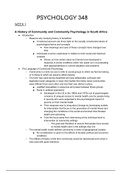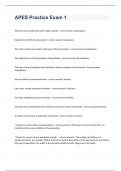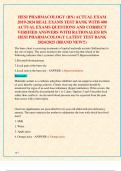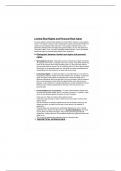Summary
Summary Psychology 348 Exam Notes
- Course
- Institution
Psychology 348 exam notes that include summaries of all the prescribed readings for the year, class notes, information on the slides as well as participation exercises throughout the course.
[Show more]












